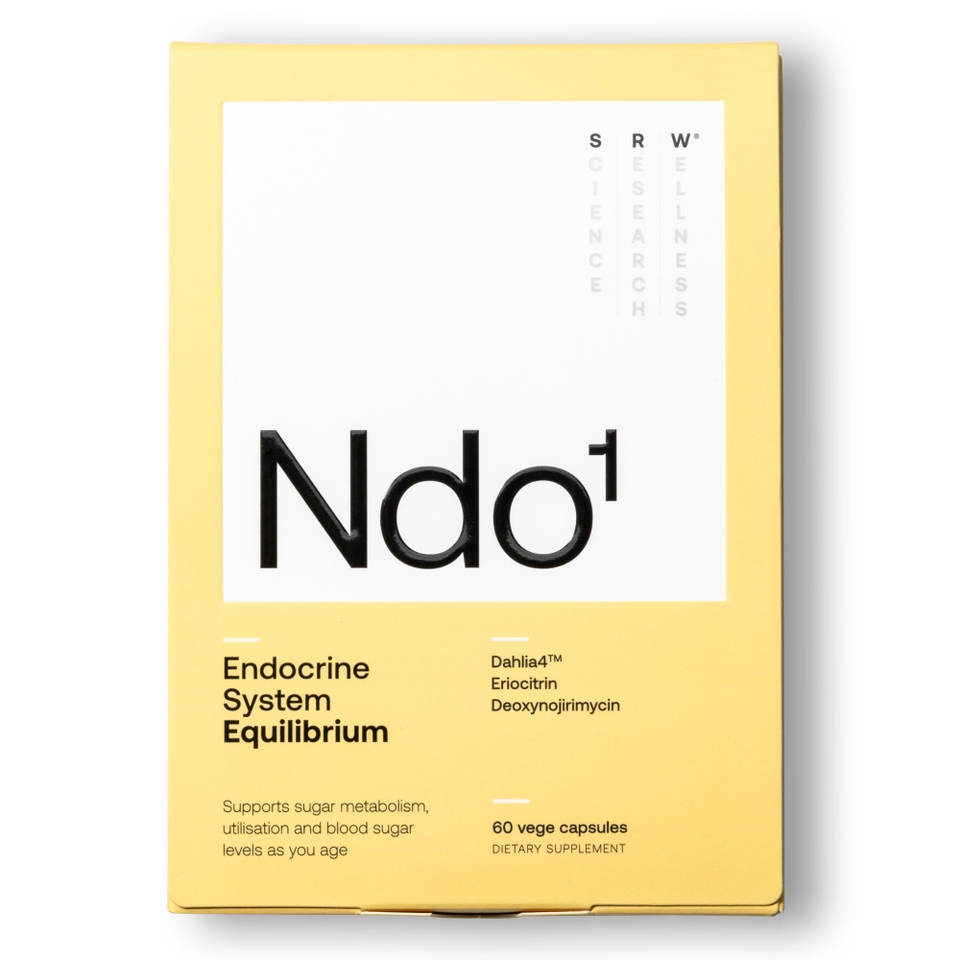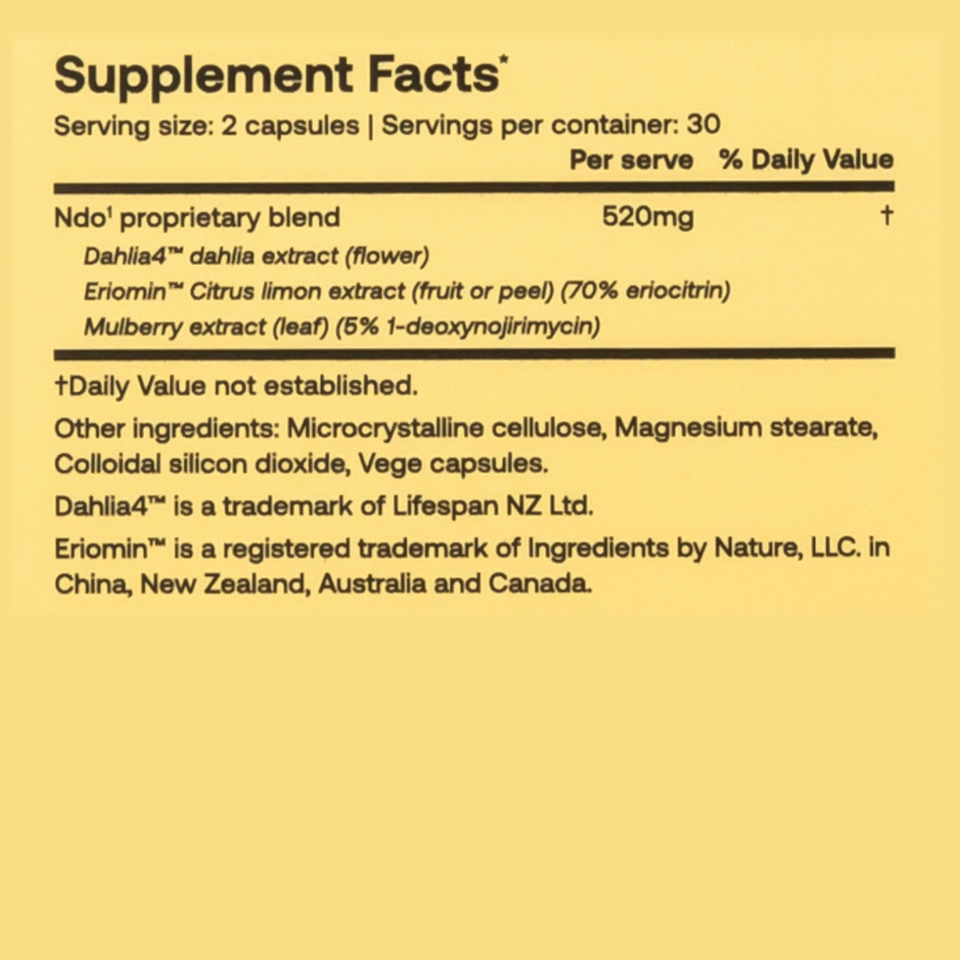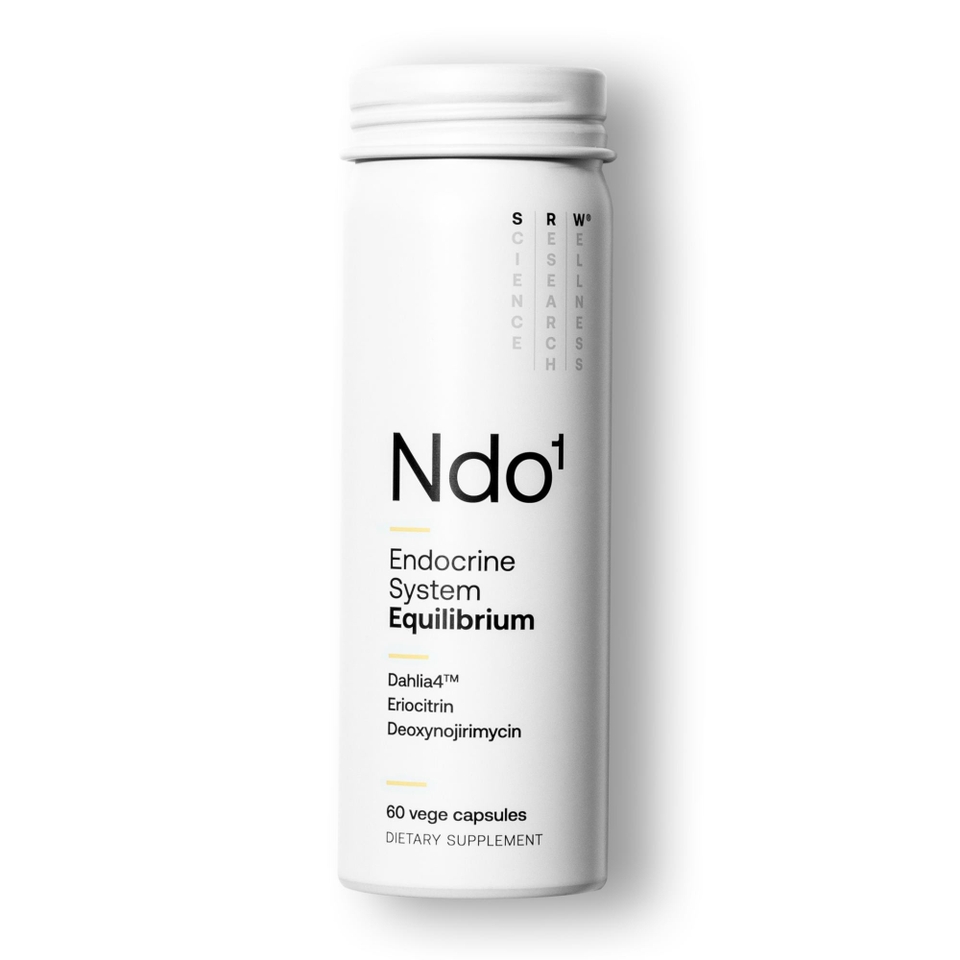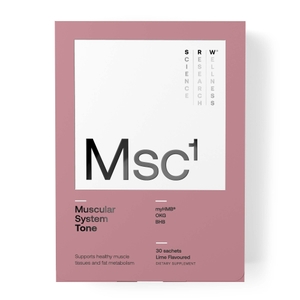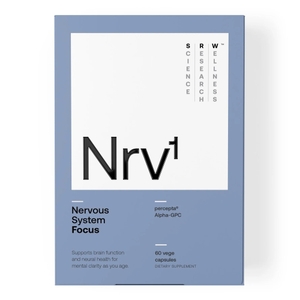Image 1 of 4
Product Information
The endocrine system plays a key role in regulating blood glucose metabolism in the body. This system is made up of a series of organs, such as the pancreas, that work with the digestive and nervous systems to support a delicate balance of blood sugar levels in the body.
Ndo1 Equilibrium is formulated with a patented and proprietary blend of components that work together to support normal sugar metabolism and utilisation by the human body, hence supporting the maintenance of healthy blood sugar levels during the aging journey.
Ndo1 supports:
→ Sugar metabolism and utilisation
→ Blood sugar levels
→ Endocrine and nervous system responses to sugar intake
→ Overall health and wellbeing
US Patent Pending 18/984,486 and NZ Patent Pending 817294
Take 2 capsules daily preferably with food or as directed by your healthcare practitioner.
Store in a cool, dry place.
People with diagnosed diabetes should check with their doctor as blood sugar levels could be altered when using this product.
Warnings: For adults only. Keep out of reach of children. Stop using and see your healthcare professional if an adverse reaction occurs. Consult your practitioner if pregnant or breastfeeding.
→ Supports sugar metabolism and utilisation
→ Supports blood sugar levels
→ Supports endocrine and nervous system responses to sugar intake
→ Supports overall health and wellbeing
| Ingredients | Per serve | % Daily Value |
|---|---|---|
| Ndo 1 proprietary blend | 520mg | † |
| Dahlia4™ dahlia extract (flower) | † | |
| Eriomin™ Citrus limon extract (fruit or peel) (70% eriocitrin) | † | |
| Mulberry extract (leaf) (5% 1-deoxynojirimycin) | † | |
| †Daily Value not established. | ||
Other ingredients: Microcrystalline cellulose, Magnesium stearate, Colloidal silicon dioxide, Vege capsules.
Dahlia4™ is a trademark of Lifespan NZ Ltd.
Eriomin™ is a registered trademark of Ingredients by Nature , LLC. in China, New Zealand, Australia and Canada.
Range
Brand
Volume
Ndo¹ Equilibrium - Blood Sugar Supplements - 60 Capsules
- Save 15% on all recurring orders
- Free delivery on all recurring orders
- You control the frequency
- No commitment. Cancel or delay
Quantity
In stock | Usually dispatched within 24 hours
Buy Now Pay Later:
4 instalments of NZ$34.75 with AfterpayLearn more
Product Information
The endocrine system plays a key role in regulating blood glucose metabolism in the body. This system is made up of a series of organs, such as the pancreas, that work with the digestive and nervous systems to support a delicate balance of blood sugar levels in the body.
Ndo1 Equilibrium is formulated with a patented and proprietary blend of components that work together to support normal sugar metabolism and utilisation by the human body, hence supporting the maintenance of healthy blood sugar levels during the aging journey.
Ndo1 supports:
→ Sugar metabolism and utilisation
→ Blood sugar levels
→ Endocrine and nervous system responses to sugar intake
→ Overall health and wellbeing
US Patent Pending 18/984,486 and NZ Patent Pending 817294
Take 2 capsules daily preferably with food or as directed by your healthcare practitioner.
Store in a cool, dry place.
People with diagnosed diabetes should check with their doctor as blood sugar levels could be altered when using this product.
Warnings: For adults only. Keep out of reach of children. Stop using and see your healthcare professional if an adverse reaction occurs. Consult your practitioner if pregnant or breastfeeding.
→ Supports sugar metabolism and utilisation
→ Supports blood sugar levels
→ Supports endocrine and nervous system responses to sugar intake
→ Supports overall health and wellbeing
| Ingredients | Per serve | % Daily Value |
|---|---|---|
| Ndo 1 proprietary blend | 520mg | † |
| Dahlia4™ dahlia extract (flower) | † | |
| Eriomin™ Citrus limon extract (fruit or peel) (70% eriocitrin) | † | |
| Mulberry extract (leaf) (5% 1-deoxynojirimycin) | † | |
| †Daily Value not established. | ||
Other ingredients: Microcrystalline cellulose, Magnesium stearate, Colloidal silicon dioxide, Vege capsules.
Dahlia4™ is a trademark of Lifespan NZ Ltd.
Eriomin™ is a registered trademark of Ingredients by Nature , LLC. in China, New Zealand, Australia and Canada.
Range
Brand
Volume
